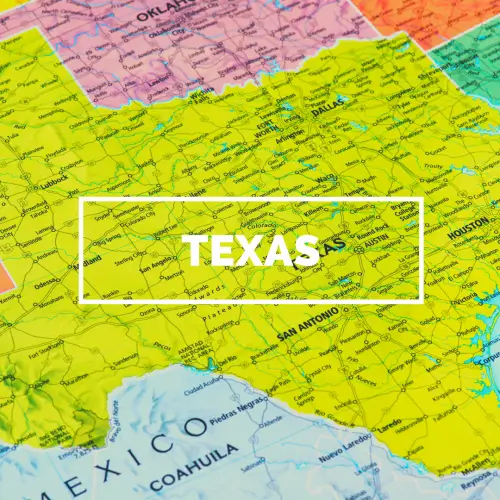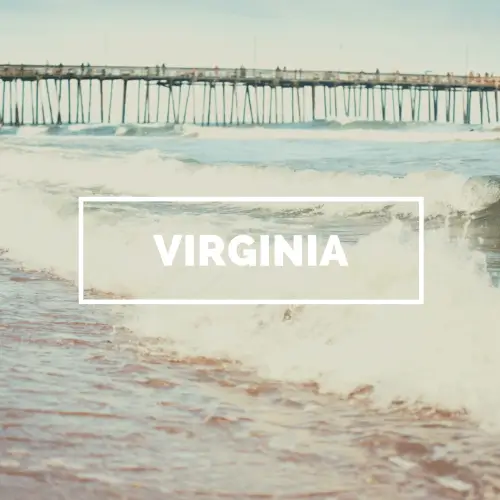The way you finance your gooseneck trailer matters as much as the trailer itself.
Many buyers rush through the financing step and end up with payments they struggle to manage for years to come. That decision can strain a budget and limit what you can accomplish with your trailer.
Buying a gooseneck trailer is a big step. It requires planning and an understanding of the available options. A good financing plan helps you manage costs and stay on track. A poor one can cost more than you expected.
Some people compare bad financing to putting everything on a high-interest credit card when better choices were available. The result is a stack of bills and unnecessary stress.
What You’ll Learn
In this post, you will learn:
What financing options are available for gooseneck trailers and how they compare
The key requirements and benefits of each
How to apply and what to watch for in the process
Summary
Gooseneck trailers are a significant investment for both businesses and individuals, but a variety of financing options make ownership accessible and manageable. Here’s an overview of the most common financing solutions, their features, and what to expect during the application process.
Common Financing Options
Traditional Loans
Offered by banks, credit unions, and specialized lenders.
Fixed or variable interest rates typically start as low as 3.25% for qualified buyers.
Loan terms usually range from 24 to 72 months, with some lenders offering up to 15 years for larger purchases.
Down payments may be required, often 10% or more, depending on creditworthiness and lender policies.
Approval is based on credit score, income, and in some cases business financials.
Equipment Financing & Leasing
Ideal for businesses seeking to maintain a stable cash flow.
The trailer itself serves as collateral, making approval easier even for those with less-than-perfect credit.
Leasing allows for lower monthly payments and potential tax advantages, although ownership typically requires a buyout at the end of the term.
Flexible repayment schedules (monthly, quarterly, or seasonal) are often available.
Rent-to-Own (RTO) Programs
No credit check required in many cases, making it accessible for buyers with poor or no credit history.
Small down payments (sometimes as low as $500) and manageable monthly payments.
Terms typically range from 24 to 60 months, with the option to pay off early without penalty.
At the end of the term, you own the trailer outright.
The total cost may be higher than traditional financing, but RTO offers immediate access to equipment.
Bad Credit Financing
Specialized lenders offer programs for buyers with low credit scores (as low as 575).
May require higher interest rates and larger down payments.
Proof of income, stable employment, and a history of residence can improve approval odds.
Flexible terms and customer-focused service are standard features.
Key Features and Benefits
Fast Approvals: Many lenders offer same-day or next-day decisions, especially for business customers.
Flexible Terms: Select from a range of payment schedules and loan durations tailored to your budget.
Tax Advantages: Businesses may qualify for tax deductions and depreciation benefits under Section 179 and bonus depreciation rules.
Preserve Cash Flow: Financing allows you to spread the cost over time, keeping capital available for other needs.
Typical Requirements
How to Apply
Choose a Lender or Dealer: Many trailer dealers partner with financing companies to offer streamlined application processes.
Submit Application: Provide personal or business financial information, credit history, and details about the trailer.
Review Terms: Compare interest rates, loan terms, and total repayment costs to make an informed decision.
Sign Agreement: Once approved, sign the loan or lease documents and arrange for trailer delivery or pickup.
Special Considerations
Rent-to-own is ideal for individuals with limited credit or new businesses, but total costs may be higher than those of traditional loans.
Leasing is ideal for businesses that want to upgrade equipment frequently or require lower monthly payments.
Traditional loans offer the lowest rates for well-qualified buyers and those seeking long-term ownership.
Bad credit options are available, but expect higher rates and stricter terms.
Financing a gooseneck trailer is accessible through a range of options tailored to different financial situations. Whether you prefer a traditional loan, flexible lease, or a rent-to-own program, there are solutions to fit most needs and credit profiles. Always compare offers, understand the total cost, and choose the plan that best supports your hauling goals and financial health.
Why The Financing Decision Is Important
Buying a gooseneck trailer is a significant investment. However, many people focus solely on the trailer without carefully planning the financing. That mistake can drain your budget and make it harder to reach your goals.
It’s a little like the credit card trap. Imagine charging a huge purchase to a card with a high interest rate, even though better options were available. Soon, you’re stuck paying more every month than you expected. Bills stack up. The calculator shows how much extra you’re paying. You start wondering if the trailer was even worth it.
That’s why choosing the right financing option is as important as selecting the trailer itself. A brilliant plan keeps costs under control, leaving you with money to spare for what matters.
Common Financing Options
There are four main ways to finance a gooseneck trailer. Each has different requirements, costs, and benefits. Here’s a closer look at the first one:
Traditional loans
A traditional loan is one of the most common ways to finance a gooseneck trailer, especially for buyers with good credit. You borrow a set amount from a bank, credit union, or specialty lender, then pay it back over time with interest.
These loans work well if you want to own your trailer outright and pay the lowest total cost over the life of the loan. They’re also the most straightforward, which makes them appealing if you already have a good relationship with a bank or lender.
Here’s what you can expect:
Who offers it: Banks, credit unions, and lenders that focus on equipment financing. Many trailer dealers also partner with these lenders to help streamline the loan application process.
Interest rates: Fixed or variable rates are available. Qualified buyers with strong credit can expect rates to start around 3.25 percent.
Loan terms: Standard loan lengths run from 24 to 72 months. Some lenders may extend terms to 10 or even 15 years for higher-priced trailers.
Down payment: Most lenders require a down payment of at least 10 percent. Some may request additional coverage, depending on your credit score or the trailer’s cost.
Approval process: You’ll need to submit an application, provide proof of income, show your credit history, and sometimes share business financials if it’s for commercial use. Approval usually takes between one and three days.
Traditional loans are best suited for buyers with good or excellent credit who want to minimize interest costs. You’ll need cash on hand for the down payment and the ability to show steady income.
If you qualify, this option typically offers the lowest total cost and grants you full ownership of the trailer once you’ve made your final payment.
Equipment financing and leasing
Equipment financing and leasing is another popular option for gooseneck trailers, especially for business buyers. This type of financing helps you keep more cash available for other expenses while still getting the trailer you need.
With equipment financing, the trailer itself serves as collateral, making approval easier compared to a traditional loan. Many businesses choose this route because it offers more flexibility and can be tailored to fit seasonal cash flow.
Here’s what you can expect:
Many lenders and trailer dealers offer equipment financing and leasing programs designed explicitly for business purchases.
Why choose it: It allows you to spread out payments while preserving your working capital. Businesses often prefer this option because it keeps their cash free for payroll, supplies, and other priorities.
Approval process: Since the trailer secures the loan, lenders are often more willing to work with buyers who have average credit. Approval usually takes one to two days.
Payment structure: Payments can be set up on flexible schedules, such as monthly, quarterly, or even seasonal, to match your income pattern.
Ownership at the end: If you lease the trailer, you won’t automatically own it at the end of the term. Some agreements offer a buyout option, allowing you to purchase the trailer for a set amount once your payments are complete.
Tax benefits: Businesses may qualify for tax deductions and depreciation benefits when they finance or lease equipment, although it’s wise to speak with a tax advisor about your specific situation.
This option is best suited for businesses that require predictable payments, flexible terms, and the ability to upgrade equipment more frequently. If long-term ownership is your priority, make sure the agreement includes a buyout clause.
Rent-to-own programs
Rent-to-own programs are designed for buyers who may not qualify for a traditional loan or equipment financing. They offer an easier path to ownership with fewer upfront requirements. Many buyers choose this option when they have a limited credit history, poor credit, or insufficient funds for a down payment.
This approach lets you start using the trailer right away while making regular monthly payments. Once the term is completed, you own the trailer outright.
Here’s what you can expect:
Who offers it: Many trailer dealers and some specialized lenders offer rent-to-own agreements directly to buyers.
Why choose it: Rent-to-own works well if you don’t qualify for other financing options. It’s a way to build ownership over time without a heavy upfront financial burden.
Approval process: Many programs do not require a credit check, making it accessible even if your score is low. Approval is often granted the same day.
Upfront cost: Down payments are usually low, sometimes as little as $500.
Payment structure: Terms often range from 24 to 60 months, with fixed monthly payments.
Ownership at the end: Once you have made the agreed-upon payments, you will own the trailer. There’s no additional buyout needed.
Total cost: The overall amount you pay over time is usually higher than traditional financing. This reflects the convenience and lower barrier to entry.
This program is best suited for buyers who require immediate access to a trailer and are willing to accept higher total costs in exchange for easier approval and lower upfront costs.
Bad credit financing
Bad credit financing is designed for buyers with low credit scores who still need a gooseneck trailer. Even if your credit is as low as 575, lenders are willing to work with you. This option is often a last resort because it typically incurs higher overall costs, but it provides buyers with access when other options are unavailable.
Here’s what you can expect:
Who offers it: Specialized lenders who focus on high-risk loans and some trailer dealers with in-house programs.
Why choose it: This may be the only option for buyers with a poor credit history, limited credit, or past financial difficulties.
Approval process: You will still need to provide proof of income, steady employment, and, in some cases, proof of residence. Approval usually takes one to two days.
Upfront cost: Higher down payments are common, often starting around 10 percent or more.
Interest rates: Rates are higher than with other financing options to offset the lender’s risk.
Payment structure: Terms are often flexible, but monthly payments will be higher for buyers with weaker credit.
Ownership at the end: You own the trailer once you’ve completed all payments.
This option is often used when other types of financing are not available. It can help you get a trailer now while you work to improve your credit over time.
To learn more about moving your vehicle across state lines while buying your trailer, read our guide on how to ship your car to another state.
Key Features And Benefits
Financing a gooseneck trailer does more than make it affordable. The right plan can also help you manage your money more effectively and keep your business or personal budget on track.
Here’s what financing offers beyond affordability:
Fast approvals: Many lenders can provide a decision within one to three days. Some dealers and rent-to-own programs approve the same day.
Flexible terms: Payment plans can be adjusted to fit your budget and income. Options may include seasonal payment schedules or buyout clauses for leases.
Tax advantages: If you’re using your trailer for business, you may qualify for deductions on loan interest, lease payments, or depreciation. Speak with a tax advisor to confirm what applies to you.
Preserve cash flow: Financing allows you to spread the cost over time, keeping more money available for other needs, such as supplies, payroll, or unexpected repairs.
These benefits make financing an attractive option, even if you could pay cash up front.
Typical Requirements For Financing
Before applying for financing, it's helpful to know what lenders typically expect. Each type of financing has slightly different requirements, so you can prepare the proper documents and set realistic expectations.
The table below compares the key requirements for each financing option:
Lenders may also ask for business financials, proof of residence, or employment history, depending on the program. Being prepared with these details can make the process smoother and faster.
How To Apply
Financing a gooseneck trailer doesn’t need to be complicated. Here’s a simple process to follow:
1. Choose a lender or dealer
Decide where to apply. You can go through a bank, credit union, specialized lender, or trailer dealer. Many dealers work with financing partners to save you time and effort.
2. Complete your application
Provide your personal or business financial details, credit information, and specific trailer details. When purchasing for a business, you may also need to include the company's financial records.
3. Review your offers
Go over each offer carefully. Compare interest rates, monthly payments, total cost, length of the loan or lease, and any fees. Ensure you thoroughly understand the terms before making a decision.
4. Finalize your agreement
Once you pick the plan that works best, sign the paperwork. Coordinate with the dealer to pick up your trailer or arrange for delivery.
Taking time at each step helps you secure a plan that matches your budget and keeps your ownership goals on track.
Final Thoughts
Financing a gooseneck trailer affects more than the purchase itself. The plan you choose affects your budget and how well the trailer aligns with your long-term needs.
Each option is most effective in specific situations. Traditional loans often cost the least for buyers with strong credit. Leasing helps businesses that frequently upgrade or require lower payments. Rent-to-own and bad credit financing allow buyers with limited credit to get started, though they come with higher costs.
Compare offers, review all terms, and select a plan that you can afford and sustain. A good financing choice helps you stay on budget and allows you to get the most out of your trailer for years.
Need Help Shipping Your Car?
If you’re also planning to move your car, AmeriFreight Car Shipping can help. Our agents collaborate with a network of trusted carriers to arrange safe and reliable vehicle shipping across the country.
We offer open and enclosed transport options to fit your needs. Our team can explain what each option means and help you choose the best fit for your vehicle and budget.
Frequently Asked Questions (FAQs)
How many years can you finance a trailer?
Most trailer loans range from 24 to 72 months in duration. Some lenders may offer terms as long as 10 to 15 years, especially for higher-priced trailers. The exact term depends on the lender, your credit, and the loan amount.
Do banks give loans on trailers?
Yes, many banks, credit unions, and specialty lenders offer loans specifically for trailers, including gooseneck models. Approval depends on your credit, income, and sometimes a down payment.
How much is trailer insurance a month?
Trailer insurance costs vary widely, depending on the type of trailer, its intended use, your location, and your driving record. On average, you pay anywhere from $20 to $50 per month for basic coverage. Contact your insurance provider for an accurate quote tailored to your specific situation.
Do you need insurance to finance a trailer?
Most lenders require proof of insurance before they finalize your loan. This protects their interest in the trailer while it’s being paid off. Be prepared to show evidence of a policy that meets the lender’s minimum coverage requirements when you close on your loan.
Disclaimer: This post is for general informational purposes only and does not constitute financial, tax, or legal advice. Financing terms, insurance requirements, and costs can vary by lender, location, and individual circumstances. Always consult with a qualified financial professional, lender, or insurance provider before making decisions about financing or insuring a trailer.






















